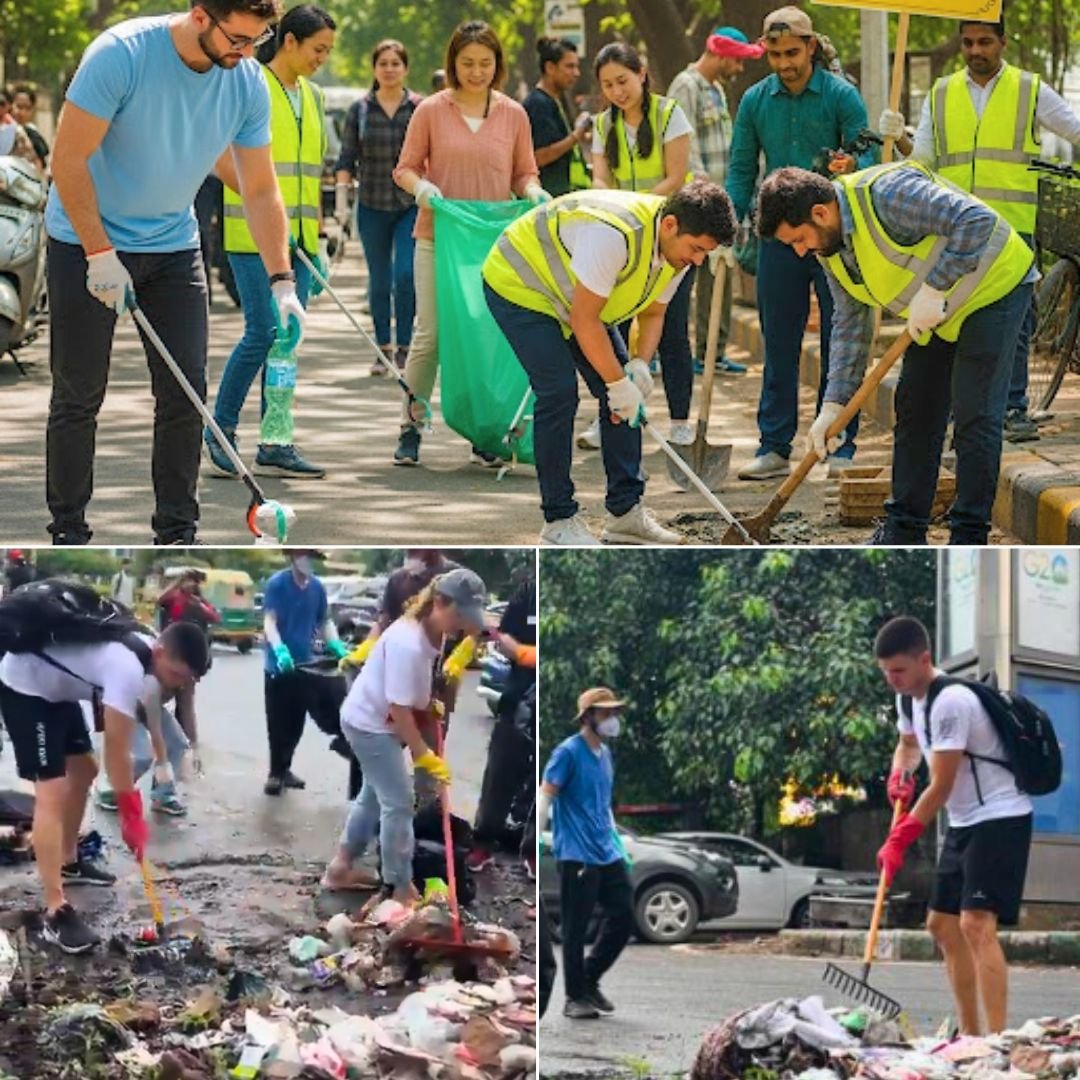
Gurugram, the Millennium City, found itself in the global spotlight when a group of foreign nationals picked up brooms and cleaned its garbage-clogged streets and drains. The sight was both inspiring and uncomfortable—outsiders reminding Indians of their own responsibility. This act of civic duty quickly went viral, sparking nationwide debates about urban neglect, governance, and citizen apathy.
A Scene That Stunned Gurugram
Onlookers near Guru Dronacharya Metro Station watched in surprise as Serbian, French, and other expatriates collected trash, unclogged drains, and carried placards that read: “Your street, your responsibility” and “No trash, more trees.” Their goal wasn’t just to clean but to challenge residents to look beyond their household boundaries.
Why Did They Step In?
One of the volunteers, Lazar from Serbia, summed it up: “India is amazing. I love this country. But it is painful to see garbage everywhere. People must care for spaces outside their homes too.” His words resonated because they exposed the gap between personal cleanliness and public neglect. Another volunteer, Matilda from France, called it heartbreaking that a country with such beauty struggles with basic sanitation.
The Sanitation Crisis in Gurugram
Despite spending ₹250 crore every year on sanitation and over ₹500 crore in the last decade on drainage infrastructure, Gurugram continues to suffer from flooding, clogged drains, and garbage overflow. The problem worsened after migrant sanitation workers left the city due to administrative crackdowns, leaving gaps in essential waste management systems.
Public Reactions – Pride or Shame?
- Supporters praised the foreigners, calling their action a much-needed wake-up call.
- Critics said it was shameful and insulting that non-Indians were cleaning Indian streets.
- On social media, hashtags like #CleanIndia and #GurugramGarbageCrisis trended, highlighting both anger and admiration.
Beyond Gurugram – A National Reflection
This incident isn’t just about one city. It reflects a deeper malaise across urban India—gleaming malls and towers coexisting with garbage-strewn streets. While campaigns like Swachh Bharat Abhiyan have created awareness, the implementation gap remains huge. Civic bodies struggle with efficiency, while citizens often shirk responsibility.
The Real Lesson
The act of foreigners cleaning Indian streets should not be seen as an insult, but as a mirror. It shows us what collective action can achieve. Cleanliness cannot be outsourced—it requires every household, shopkeeper, resident, and municipal official to own their surroundings. If strangers can care enough to pick up our trash, why can’t we?
Ganvan’s Call: Gurugram’s episode is a reminder that true progress is not measured by skyscrapers but by the dignity of our public spaces. Civic sense begins when we see the street outside our home as part of our home. India doesn’t need outsiders to clean its drains—it needs its citizens to rise, act, and own their responsibility.
FOR MORE BLOGS – beyondthepunchlines.com

 Add to favorites
Add to favorites






